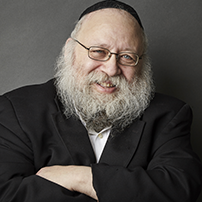
A SPECIAL KIDDUSH
We open each Seder with recitation of the Kiddush, just as we do at the onset of every Shabbat and major Jewish holiday. During the Kiddush, we declare the sanctity of the Holy Day into which we are entering. Passover is no exception. Before we begin to engage with the specific character of Passover we must first of all acknowledge that it is a Holy Day.
However, since the Kiddush wine is only the first of the four cups—a Passover requirement—it conveys a uniquely Passover message; a message both plain and simple: we must sanctify ourselves and make ourselves holy before we enter the inner precincts of the Seder. To fully appreciate the Seder, a spiritual journey towards freedom in all respects, one must make an effort to be sanctified.
WE ARE HOLY!
On a deeper level, Kadesh declares that we too are holy. The blessing of the Kiddush ends with the words: “Blessed are you G-d Who sanctifies Israel and the Festivals.” The Talmud explains that G-d first made us holy and then—endowed with His holiness, we established the Holy Days and made them holy too.
Hence, the first order of business is that we know we are holy. Without this knowledge we cannot make the Passover holy.
But, the question arises, how can we say that we are holy? By the time the Israelites left Egypt they had become so debased and degenerated that they were deep in the spiritual abyss; they had reached the lowest level of impurity.
And as we relive the Passover experience in an orderly fashion we must focus on the need to cleanse ourselves. Only once we have accomplished that step may we talk about being holy. And, indeed, the next item for the Seder is Urchatz—wash and cleanse. But shouldn’t that have been the first item of the Seder; first cleansing and then sanctifying?
PASSOVER IS NOT NORMAL!
The truth is that under normal circumstances, we would speak of cleansing ourselves before we sanctify ourselves.
But Passover is not “normal.” On Passover night, we “pass over” the conventional approach and we jump into the advanced levels of holiness right at the beginning.
There are times when we do start at the beginning. That is certainly the case with Rosh Hashanah and the month of preparation (Elul) that precedes it. Passover, by contrast, is when we are raised up and pass over the usual limitations, obstacles and constraints. The Rosh Hashanah season requires us to commence with our own efforts. This is hinted at in the Biblical verse in the Song of Songs: “I am to my beloved and my beloved is to me.” The “I” refers to us and the “beloved” refers to G-d.
However, Passover is represented by a sister verse that reverses the order: “My beloved is to me and I am to Him.”
During Passover, G-d “plucks” us out of the Egyptian morass and elevates us to the highest levels of holiness.
There are times that we cannot afford to wait until we are cleansed; we must begin with holiness. Passover is such a time.
The opening part of the Seder—the Kadesh—thus essentially declares:
“You are holy! Don’t get bogged down and caught up with your lowliness. Focus on your “highly-ness” and holiness instead.”
“Don’t assume you are not able to jump over all the obstacles. You can do it precisely because you are holy; a word in Hebrew that actually means different, apart, or beyond the norm. On Passover we truly are beyond the norm. The rules of incrementalism in effect for the rest of the year are suspended for the Seder.”
GD MAKES THE FIRST MOVE
The famed and beloved Chassidic master, Rabbi Levi Yizchak of Berditchev, states that the Biblical phrase “And G-d passed over the entrance” can be understood to mean that G-d passed over the request he has of us to “open up a small entrance the size of the eye of the needle so that I can open up the width of the Temple’s vestibule.”
Rabbi Levi Yitzchak bases his interpretation on the Midrash that explains the Biblical verse in the Song of Songs: “Open up My sister the bride” to suggest that G-d asks us to open up and arouse ourselves to get closer to Him even if the opening is no greater than the eye of a needle. G-d then promises that He will reciprocate with a much greater opening. On the night of Passover, G-d passes over even that minimal request of His that we initiate the relationship. On the night of Passover, G-d does not wait for us to be aroused; He comes to us first.


